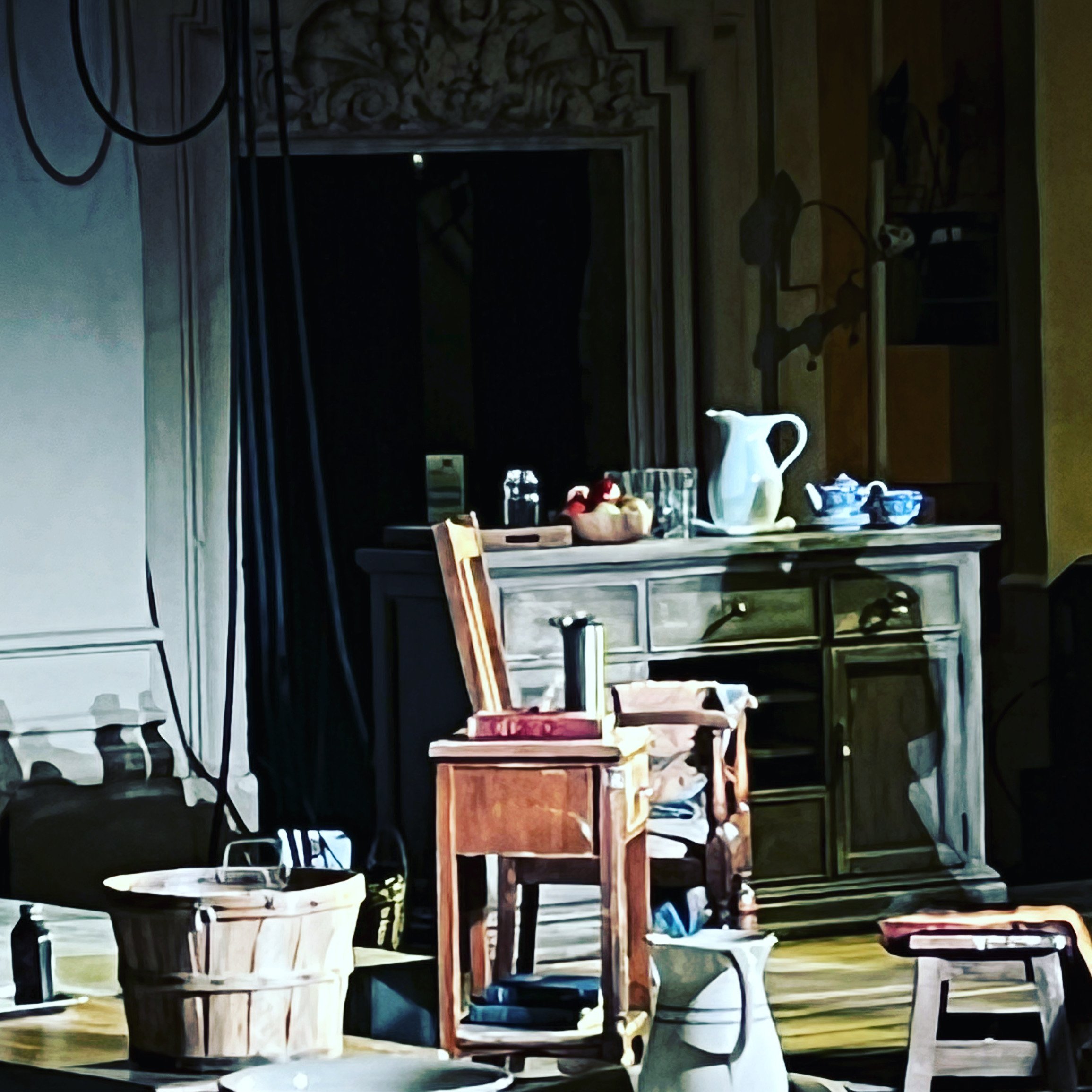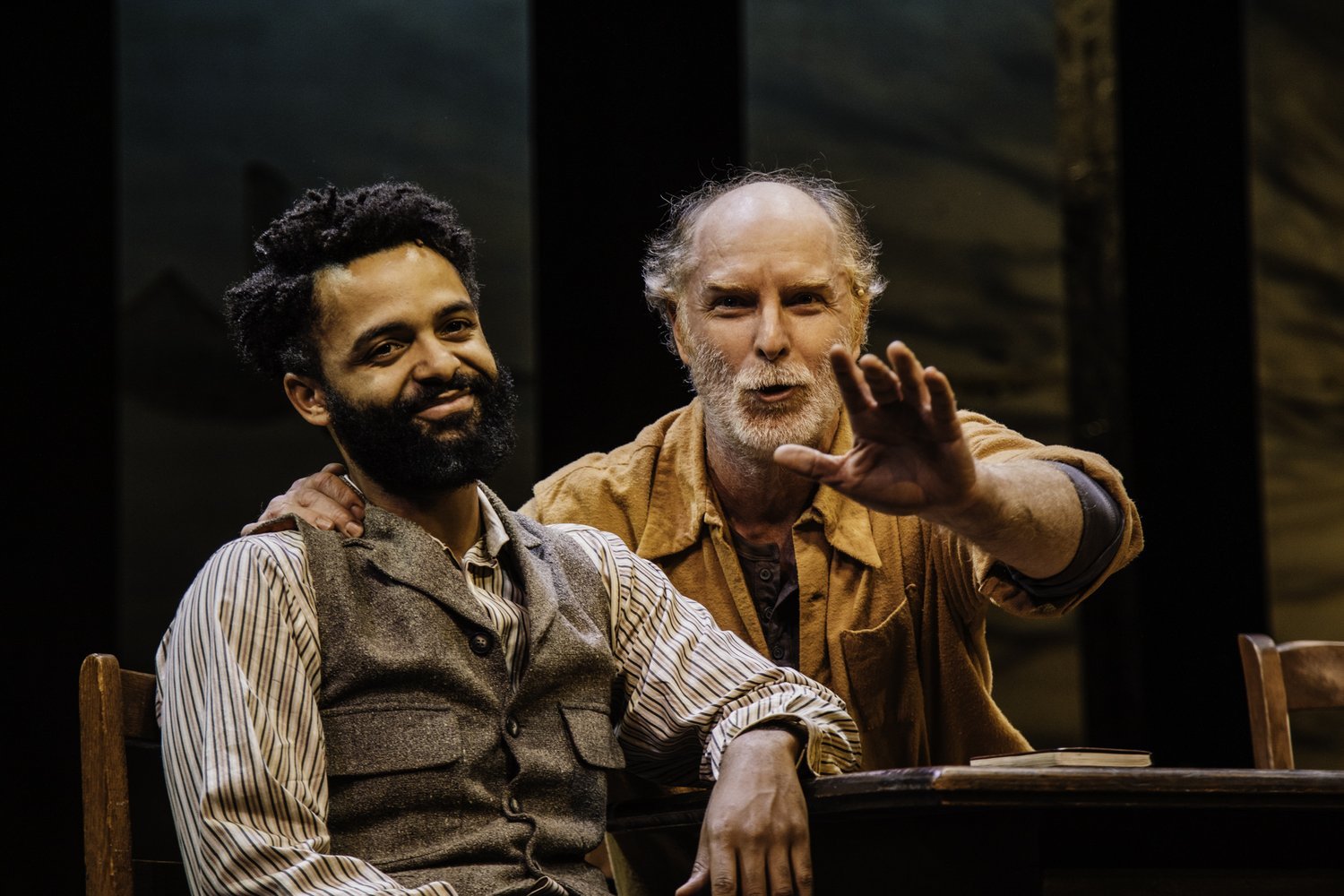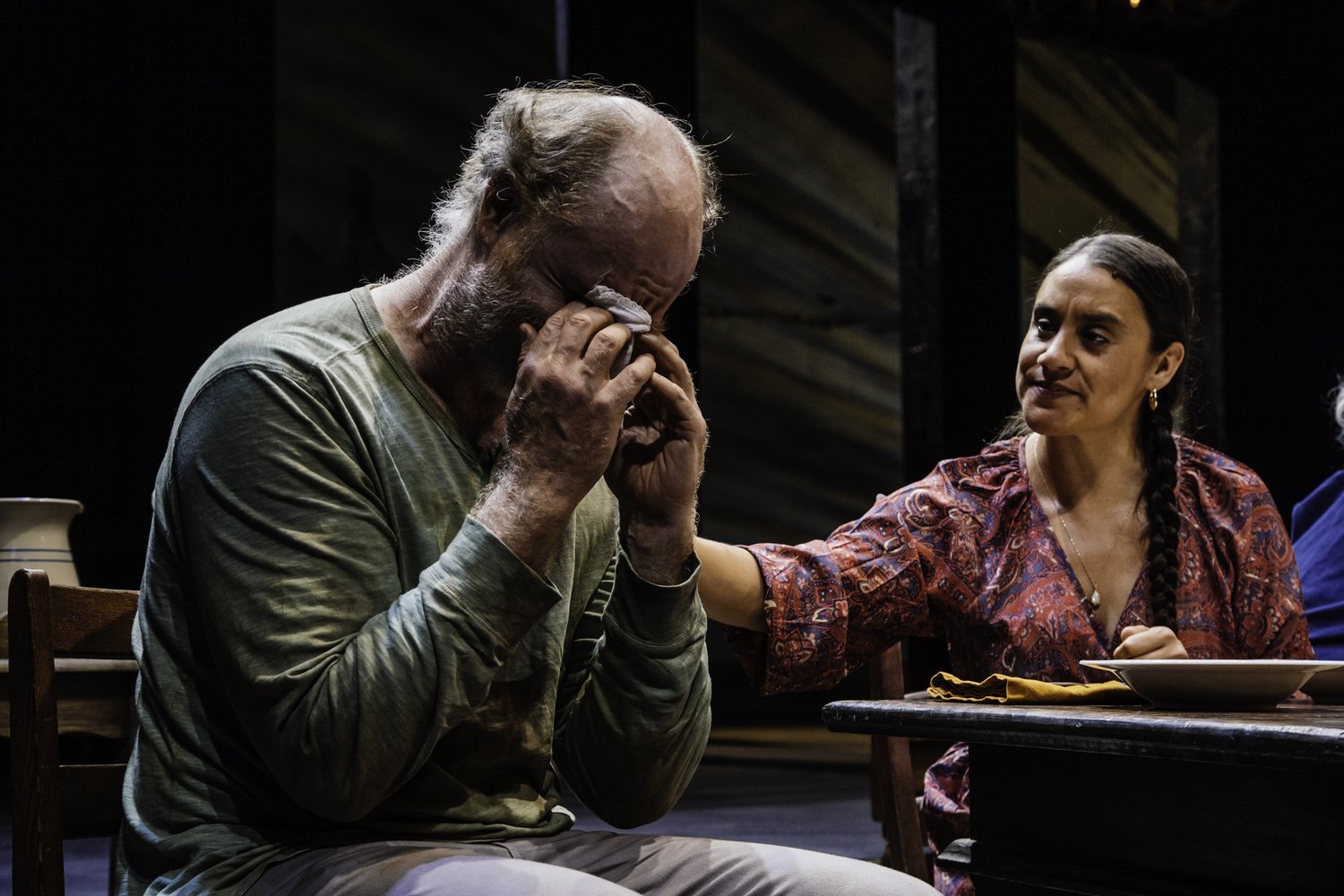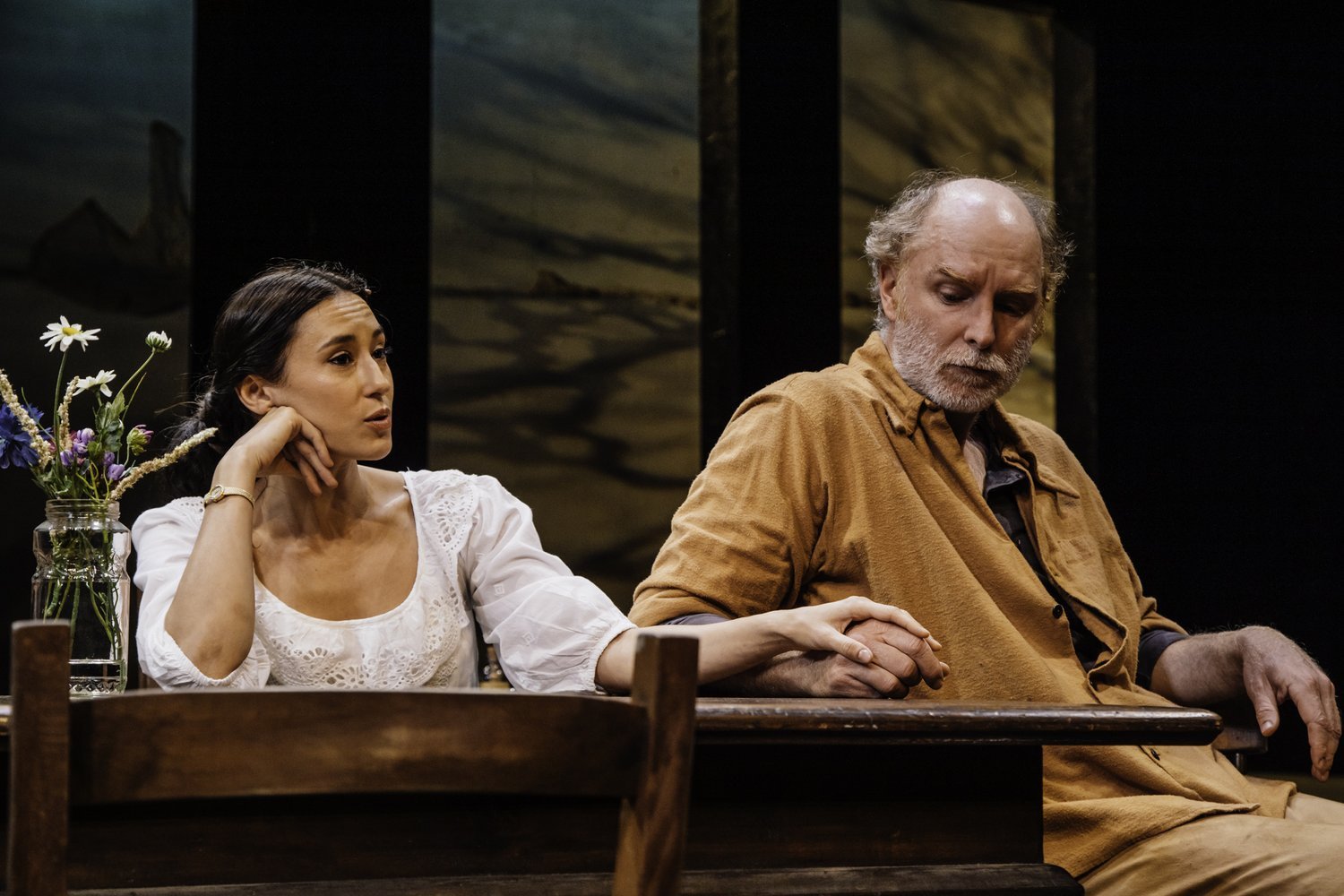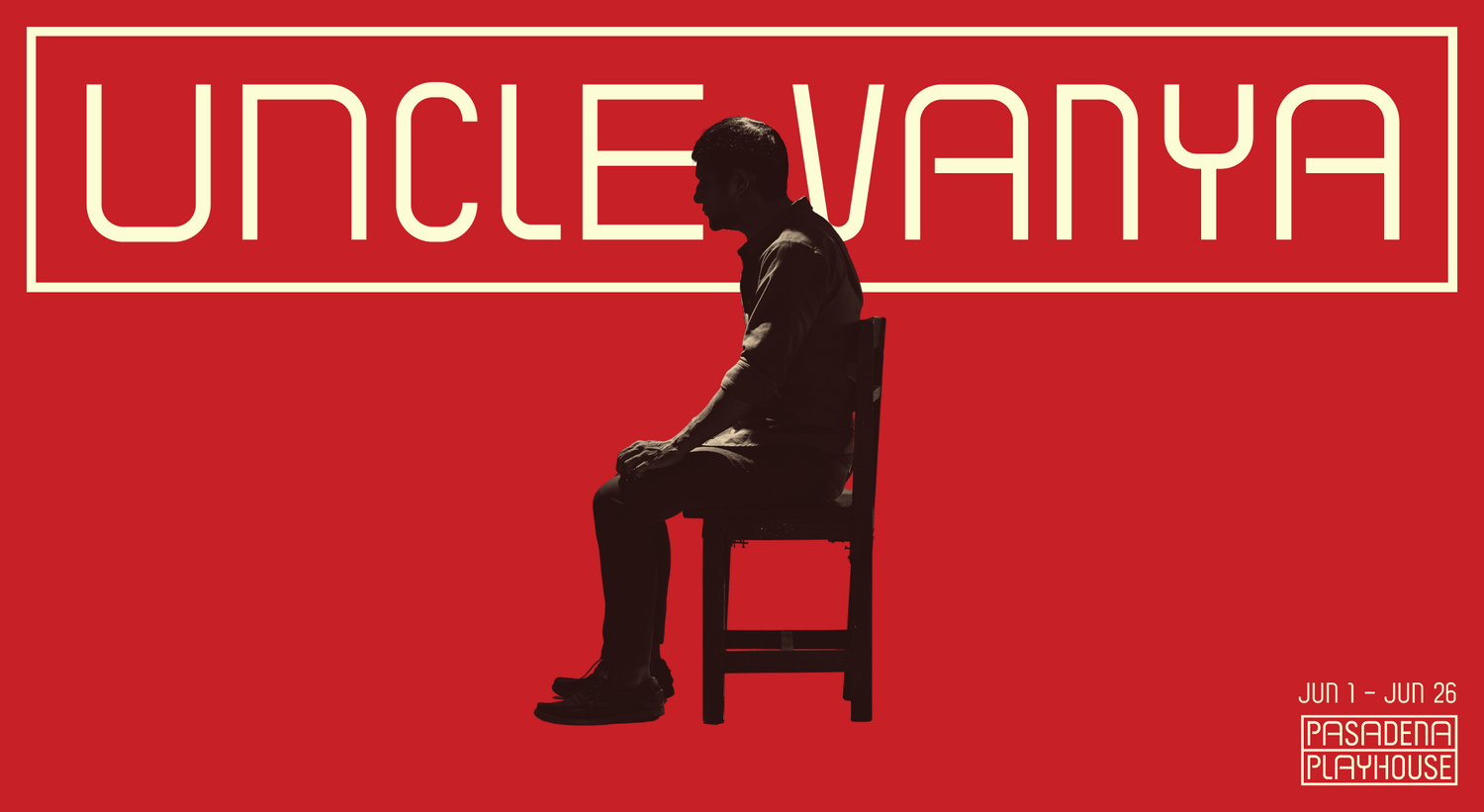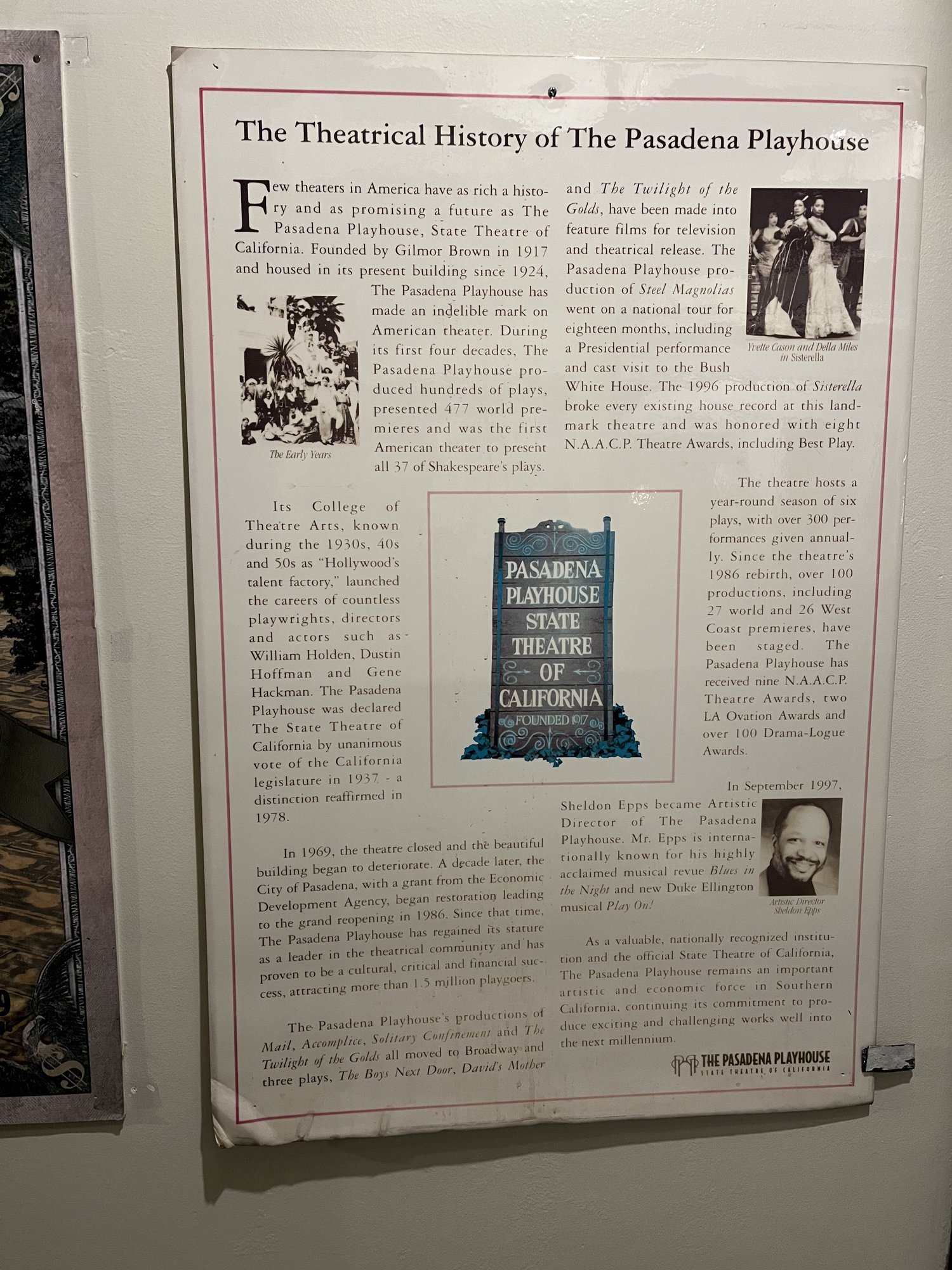Uncle Vanya and Culturally Conscious Intimacy Choreography
Michael Michetti was an eager collaborator. He laid out his hopes for scheduling intimacy rehearsals and his intention, that bringing an intimacy choreographer on board would impact the atmosphere of the rehearsal process with the actors cast in Pasadena Playhouse’s Uncle Vanya, establishing a culture of consent outside of rehearsals at which I was present, as well.
He introduced this production as a “race conscious” one, and I noted that the only two Black actors—Brandon Mendez Homer and Khetanya Henderson—were cast as Astrov and Elena respectively, bringing depth to these characters’ desire for one another.
Analyzing the moments of intimacy within the script with the actors, Khetanya passionately discussed Elena’s marriage to a lighter-skinned professor, the power imbalances inherent in that relationship, Elena’s earnest respect for him… and the striking difference between that relationship and the easy familiarity and comfort that her Elena found with Brandon’s Astrov. We discussed this relationship as being redefined by the two actors’ blackness and their lived identities, with Brandon describing the scripted moments of intimacy “true but fleeting connection and fulfillment for outsiders” and Khetanya calling Elena and Astrov’s second kiss a “moment of coming home that has been denied” for the characters.
Informed by this understanding of the meaning brought to the stage by these actors’ interpretation and embodiment of these characters, we set about crafting choreography that worked for their personal boundaries as artists, as well as supporting their interpretations of the characters, Michetti’s vision for the tone of the story, and race-consciousness within the staging of the production.
In the above photo—one of Pasadena Playhouse’s production photos from the show—you do not see Khetanya Henderson. The role of Elena was recast, only days before preview performances began. When I received the email, which simply alerted me to the fact that the role had been recast, and indicated that no further action was needed (but did not inform me of who would step into the role of Elena), I reached out to Brandon.
“How are you feeling about the choreography that we’ve set, now that you have a new scene partner?” I asked.
Brandon took a deep breath, laden with many unsaid thoughts. So I interjected: “I think we need to change it.”
He thanked me, with firmness in his voice, and he stated that he loved the original choreography and the story it told, and he didn’t want to “cause a problem” or put additional work on a production already strained by last-minute recasting, but…
He didn’t have to explain. I knew.
With the two original actors, we’d created a moment in which Elena turned to kiss Astrov… but paused, re-coiled a lock of his hair, half-chuckling to herself, and then closed the distance to kiss Astrov. The gestures that filled this brief pause were completed quickly, specifically crafted to indicate the familiarity and appreciation of the “true connection” and the “moment of coming home” that the actors had discussed while we worked together to craft the choreography.
The meaning conveyed by these few seconds of physical storytelling could become massively shifted when occurring onstage between a light-skinned Elena and a Black Astrov. Centuries of U.S. history would inform audiences’ interpretations seeing that moment onstage; more importantly, embodied and lived experiences with power dynamics and socialized interracial relations within the United States could impact the performers’ boundaries, constraining their abilities to sustainably perform that moment for an audience without experiencing harm. Even if the new pair’s physical boundaries echoed the original pair’s physical boundaries, the personal, emotional, and cultural boundaries were not likely to be the same.
I reached out to Michetti, and although it hadn’t occurred to him, he immediately acknowledged the need to change this choreography to better support both the actors’ boundaries and the story.
I spent a solid chunk of time with Chelsea Yakura-Kurtz and Brandon Mendez Homer, re-crafting the moments of intimacy between these two characters. It looked nothing like the original choreography, but it served the actors’ boundaries and the story so much better than implementing unchanged choreography within the new casting would have.
I am so grateful for MIchetti’s support in dedicating so much time to adjusting the intimacy choreography for the show immediately prior to previews, and for supporting the actors’ boundaries throughout the process (but especially for continuing to respect their boundaries when the recasting introduced so many potential hurdles and possible pressure into the process and timeline!) by allowing us to upend the choreography originally set. I am so honored to have worked with the three exuberant and intelligent actors who informed my work and who collaborated with such kindness and thoughtfulness throughout the process, and who trusted me enough to speak up about their boundaries, knowing that I would work to support their needs and their personal and professional boundaries.
I’m also grateful to Pasadena Playhouse for welcoming me to the California theatre community; serving as the intimacy choreographer for Uncle Vanya in the beautiful, historic space that is the State Theatre of California has absolutely been a dream.
